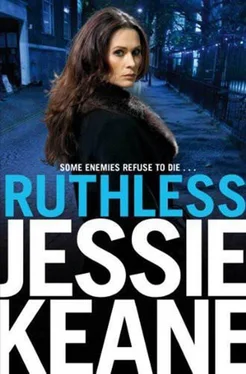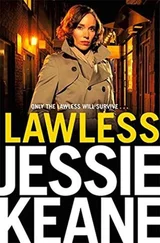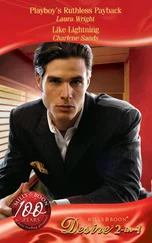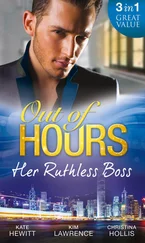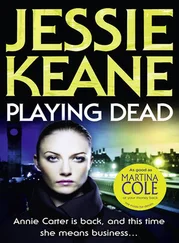Carefully, he backtracked. As soon as he was out of their sight he ran, scrambled into his car and drove, fast, away from them. He’d prepared for this. He didn’t dare return to his flat now. He drove down to the warehouse near the Albert Dock, and made his way to the wall.
Removing a few of the bricks, he rummaged inside the cavity and drew out the plastic package he’d hidden there. It contained a fake passport with his picture in it, and a stash of francs. Then he drove to Portsmouth, parked up on a quiet side road, bought a foot passenger ticket and boarded the ferry to France.
Paris, 1983
Rufus loved France. More especially, he loved the club life along the Champs-Elysées, where he quickly found work as a bouncer. No one cared who he was here, no one knew him. It was all fine. He moved into a small flat on Faubourg-du-Roule and started dating one of the louche blonde dancers from GoGo, the club he worked in.
He didn’t speak the language fluently yet, but it wasn’t a barrier to him. He set himself the challenge of learning more as soon as he could. But most of the French spoke English. And everyone, from all around the globe, understood fuck off when a meaty eighteen-stone redhead with muscles bulging out from his suit like ball bearings in an overstuffed sock, said it.
He stayed there, enjoying la vie Française.
Then he got word that Don Callaghan was on his tail again and it was time to move on. In Lille he got a job as a driver, working for a Saudi diplomat who had business and property in the Loire Valley and further south.
Sometimes he thought of his old life in Ireland, of his happy childhood, of Orla his long-dead cousin. He missed the auld country. But here, at last, in the depths of France, he could at least begin to relax.
He was driving the boss down near the medieval town of Arles, gateway to the Camargue where the wild white horses ran. The air was hot and pungent as he steered the Rolls-Royce through fields of lavender and bright yellow sunflowers. There were roses, fields of them, ready to be made into rose oil, the costliest oil on earth, at the perfumeries of Grasse.
Rufus was sweating. He had to wear full dress uniform whenever he chauffeured the boss, who sat in the back studying papers and who never talked to him except through his prissy little translator.
He pulled into the forecourt of the hotel. Five star, of course. With a spa, a huge pool, cypresses all around the beautifully manicured grounds. The moment Rufus opened the door for his important passenger, staff emerged from the vine-covered entrance to greet the diplomat and escort him inside, to take his bags, to tell Rufus where he could park the car and where the kitchens were so that he could get some refreshment.
He had parked and was on his way round to the kitchen when something hit him, hard, on the back of the head. He reeled forward, falling on to the gravel drive, feeling the sting of pain as his skin was scraped from his palms. His head was spinning. For a moment he was conscious, rolling over, trying to get to his feet, staring up at the brilliant sky. Then everything went dark.
‘Rufus! Hey, Rufus. Come on. Wake up.’
He could hear the voice – it was a man’s – but he couldn’t see a thing. His brains felt scrambled. The back of his head was hurting like crazy. He squinted, tried to focus. He was in a room, run-down, like one of those old gîtes the wily French sold on to gullible English tourists at a vast profit, as doer-uppers.
He was in a kitchen. There was an ancient stove in one corner, a sink with a dusty frilled curtain draped underneath it. There were cracked flagstones under his feet. A bare dead light bulb, the cord holding it frayed and dangerous, dangled over his head. Crumbling stone on the walls, mossy green with damp in places. And there was a small window, with thin tatty drapes pulled closed across it, so that the light level in the little room was dim, but good enough to see by. The air was cool in here, not like the dry, perfumed oven-blast of the air outside.
‘What do you mean – Rufus?’ he asked in his passable French. ‘My name’s not Rufus.’
Now he could see the bulky, dead-eyed man standing in front of him, and his blood froze.
It was Big Don Callaghan.
I’m a dead man, he thought.
Rufus struggled to orientate himself. His head ached like a bastard. But he was still alive. He tried to move and couldn’t. He was tied to a chair. His feet were free, but not his hands. How long had he been out of it? Wouldn’t the Saudi contingent raise the alarm, get people searching for him?
No. They wouldn’t, not yet. The diplomat wasn’t due to leave the hotel for three days, and during that time no one would give a fuck where Rufus was or what had become of him. When the boss was ready to check out, the interpreter would come looking for him, to ensure that the car would be clean, refuelled, and that Rufus had overseen the packing of his master’s bags into the capacious boot. Everything ran smoothly around the diplomat. But not on this occasion.
Rufus thought that Don had aged badly. He was fatter, his hair thinner. Pouches sagged under his beady, spite-filled eyes. Nonetheless he exuded an air of menace – as did the two heavies who were standing on either side of him.
‘That’s a mighty good French accent, Rufus,’ said Don. ‘Impressive.’
Rufus said nothing. Dully, he peered up at Don, who was shaking his head sadly.
‘I’m disappointed in you, Rufus. Poor Pete, my sister’s boy, he died, and what did you do? You legged it. Didn’t even pause to give me an explanation.’
Rufus said nothing.
‘Her heart was broken by it. He was her only boy. Now, are you going to tell me what happened?’
Rufus still said nothing.
‘OK, he wasn’t exactly the cream of the crop. I know that. But I trusted you to see him right. To assess his possibilities.’
Possibilities? Rufus thought bitterly. Pikey had been useless. And he had told Don that, even before he’d foisted the boy on him and set the whole disaster in motion.
‘What’s the craic, eh? Say something, Rufe. Even if it’s only bollocks.’
Rufus worked some spit into his mouth. ‘The boy was a fucking washout.’
Don drew in a sharp breath. ‘That’s not nice, speaking ill of the dead. Boy’s not here to defend himself. If he was, what a fucking fright he’d look. Burned to a fucking cinder the way he was.’
‘It was an accident,’ said Rufus. ‘He was a bag of nerves. He spilled the petrol. Set light to himself.’
‘Yeah? But that’s beside the point, isn’t it. Because you were in charge. The buck stops with you, Rufus. The foreman always takes responsibility for any balls-ups.’
‘What do you want me to say, Don?’ asked Rufus, feeling exhausted, in pain, defeated. He’d been putting this off so long, and now here it was, here it came for him. He wasn’t going to walk out of this room, he knew it. ‘God knows I didn’t want it to happen. But it did.’
‘What I want you to say is that you’re sorry, Rufus. That’s what.’
‘I am sorry. Jesus, he was only a kid. He should never have been there, Don, he wasn’t up to it. I got shot, Pardew shot me. But I got him. I went to church when I was well enough, after it happened, lit a penny candle for Pikey’s – Peter’s – soul.’
‘And I’ll light one for you,’ said Don, and nodded to the man on his left.
He was holding a petrol can.
Ah Jesus…
He took off the cap, and emptied the contents over Rufus’s head. Rufus spluttered and coughed, the fumes engulfing him, suffocating him. He swallowed petrol. Spat it out, choking, gagging.
Читать дальше
